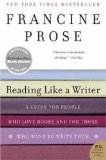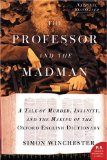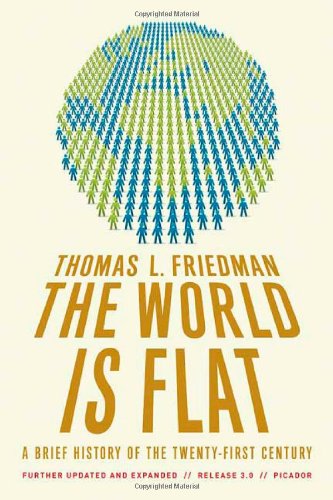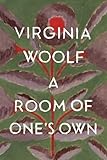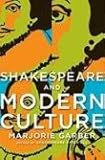 One of my best students gave me Shakespeare and Modern Culture as an end-of-the-year gift, noting that he knew how I liked Shakespeare. Clearly, Marjorie Garber has a throrough understanding of and love for Shakespeare as well.
One of my best students gave me Shakespeare and Modern Culture as an end-of-the-year gift, noting that he knew how I liked Shakespeare. Clearly, Marjorie Garber has a throrough understanding of and love for Shakespeare as well.
I found the chapters on Othello and The Merchant of Venice quite interesting—perhaps even fascinating. The other chapters had flashes of interesting information here and there; I liked Garber’s references to Freud and found his interpretations of the plays interesting enough that I might try to track them down. His psychoanalysis of the characters in Macbeth particularly interested me, and as I teach that play, reading Freud’s analysis might come in handy.
However, I never felt like this book gelled for me. I found it odd that Jane Smiley’s Pulitzer Prize-winning adaptation of King Lear received a passing reference (the author isn’t even noted except in the index, and the reference dropped in as though readers are expected to know what she’s talking about; lucky for me, I did, but would everyone who read this book know it?), while pages and pages were devoted to a MacBird, a much less well-known adaptation of Macbeth by Barbara Garson. Also puzzling is the fact that Garber says Rosencrantz and Guildenstern are Dead was published in 1996. Obviously I’m not an expert, so I looked this information up because it just didn’t seem right to me. Sure enough, I found it was published in 1966 (the movie appeared in 1990). Typo? Maybe, but it made me lose some confidence in her research. An Amazon reviewer found other factual errors I missed.
A personal pet peeve: the book has endnotes. I hate endnotes. If you need to footnote something, I prefer it be in the footer of the text. I will not flip back and forth between notes and the section I’m reading, so I wind up not reading the notes, and my guess is that any time a writer takes the time to provide annotations, it’s because they’re important. I just find the flipping back and forth too annoying. Of course, the choice of endnotes over footnotes may not be Garber’s choice, but her publisher’s.
I am not going to say this book was bad. I did learn some interesting things about the plays, but the book was not what I thought it would be. The dust jacket calls it “a magisterial new study whose premise is that Shakespeare makes modern culture and that modern culture makes Shakespeare.” I didn’t find the book delivered on that promise. I would have appreciated a brief summary of the plays. Garber assumes an absolute familiarity with the text, and I confess it’s been too long since I read The Tempest and I’m not sure if I’ve read Coriolanus, particularly after reading this book (I sure don’t remember it), so those two chapters were difficult for me to understand in light of my lack of familiarity with the plays. I suppose it is Garber’s prerogative to assume familarity with the texts she discusses, but I thought brief summaries might make her own text more accessible. I also wish Garber had discussed more of Shakespeare’s comedies. In all, it was satisfactory, but not as good as I was hoping it would be. In fact, by the end, I just wanted to finish it so I could read something else. In general, I found the reviews at Goodreads to be spot on.

